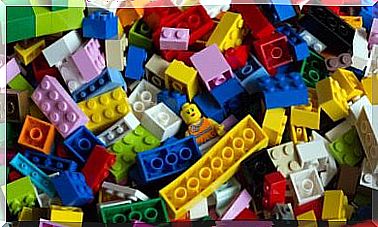The Children We Want Are Not The Children We Raise

As a society , we can and should not stop looking to the future and what subsequent generations will create. They will carry the importance of major changes and preparations that will keep society functioning when we retire. Today’s children, the children we raise, are the adults of the future.
Therefore, it is normal if we worry about how we raise our children. The world is changing and so are the standards we use. Just like their toys, interests, thoughts and aspirations, the way we raise our children with each generation develops.
For example , we have stopped believing that corporal punishment is an appropriate form of discipline, so violence in the classroom has largely ceased. We have done this by offering teachers other methods of discipline (which in Sweden are unfortunately deficient) that replace violence – it has unfortunately pushed the balance of power in favor of the students.

Not so long ago, while browsing the internet, I came across a photo of a square that is one of many in Spain. It was not very beautiful, and the photo was not taken by a professional photographer. It seemed to be taken on the fly, almost by mistake.
The interesting thing about the photo was that it was more than just a photo. There were a number of “forbidden” signs posted on some of the lampposts. The first banned play with balls, the second banned bicycles and the third banned roller skating. I wondered why they did not directly ban children. Maybe then they would not need to put more forbidden things on the list. This would be more convenient and also more economical.
Shortly thereafter, I first witnessed another scenario. Late afternoon, father and mother take a leisurely walk and shoot a quiet child in a stroller. Suddenly the baby starts crying, the way children do (and the way we did when we were so young, without remembering it today). The parents’ strategy was clear – the father took his phone out of his pocket and the child took it almost as if he expected it, and calmed down.
I thought to myself, “If he had put a soap in the baby’s mouth or given him what we used to call ‘a proper round’, the same thing would have happened.” The child would have gone from being upset to a passive state and stopped disturbing his parents’ peace. The thing is, children can be adorable, but also annoyed and restless. They can test even the most calm adult’s patience. When this happens, however, we must act in the right way – not by using mobile phones or other destructive upbringing.

Why do I address these two situations? Because it puts what we want right now in sharp contrast to what we want in the future. We want our children to be creative, but the instruction we receive in school rewards those who sit nicely and do what the teacher asks them to do.
We also want our children to be healthy, but get annoyed when they play in the pools of water on a rainy day. In addition, we want our children to be curious, but we do not make an effort to answer their questions. But for them to be the children we want, we must make an effort. We are the ones who raise them.
It is a bad sign when children are not trying to come up with any kind of plan in their spare time. Another bad sign when children do not want to play with their parents and prefer to leave them alone when they get home. A third bad sign is when children do not look at rain or snow in amazement and want to play with it.
Comfort is not good, and forcing them to eat soup, scream and hit them is not good either. It is a bad habit to forbid them to play in squares instead of using the same space to teach them about respect and how to share with others. It is bad that a neighbor complains about everything that can be the slightest annoyance.
Children need discipline and boundaries, but above all they need our patience and understanding. That is why we are the ones who think, and they are the ones who play, or at least should play.









